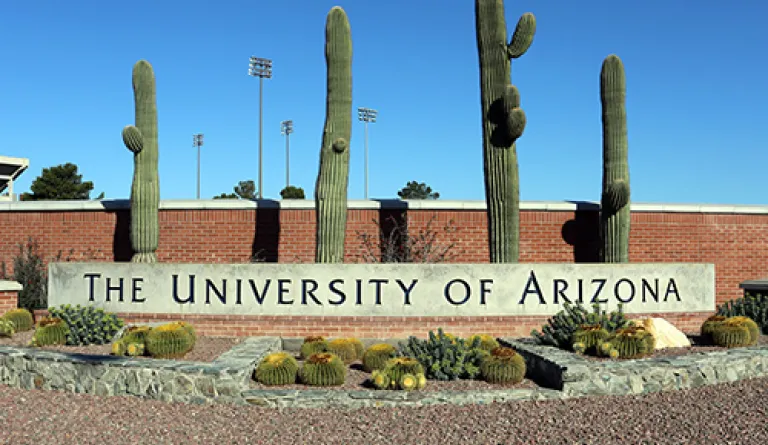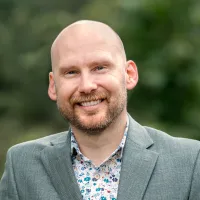Legal Paraprofessional Summit Showcases Arizona’s Leadership and National Momentum

On January 20 and 21, 2023, the University of Arizona James E. Rogers College of Law hosted the inaugural Legal Paraprofessional Summit. Arizona is one of the first four states to implement an allied legal professional (ALP) program, alongside Washington, Utah, and Minnesota, with Oregon set to implement its own program later this year.
The university has played a key role in the success of Arizona’s program, developing multiple programs to complete both the educational and practical training requirements to become a legal paraprofessional (LP). The summit itself was equally successful, bringing together active LPs, future LPs, and leaders from a number of states to learn about the different components of each state’s ALP program and the steps Arizona took to create its program.
Arizona Supreme Court Justice John R. Lopez IV kicked off the event as the keynote speaker, highlighting the court’s support of their state’s legal paraprofessional (LP) program. Two of the sessions included representatives from Arizona, Washington, Minnesota, and Oregon to discuss their programs’ scope of services and educational requirements. Each state includes some combination of family law, landlord/tenant law, and debt collection within their scope of services. Arizona distinguishes itself in this category by also providing their LPs with the option of pursuing a career in criminal and administrative law. It was interesting to learn, though, that even with this variety of options, the majority of Arizona LPs—along with the majority of ALPs in other states—are electing to pursue family law.
During the conversation on educational requirements, it was clear that states have created multiple pathways to open the ALP license up to as many people as possible. The University of Arizona exemplifies this notion by providing three different pathways itself: 1) a Master of Legal Studies; 2) a Bachelor of Arts in Law plus an accelerated Master of Legal Studies; and 3) a Bachelor of Arts in Law Legal Paraprofessional track. One recommendation that came out of this session was that states should utilize existing law school classes—e.g., evidence and professional responsibility—when creating their educational programs, instead of creating entirely new classes on the same subjects.
To become a licensed ALP, each state also has a practical training requirement. The number of required hours varies from state to state, as does how those hours must be achieved. Some states require the hours to be completed in a professional setting separate from school, while some allow those hours to be completed in school-sponsored clinics. The summit included a session on this topic, which laid out how the University of Arizona provides its students with three different avenues to complete the practical training requirement:
- Simulation courses where students represent a simulated client just as they would if they were a licensed legal paraprofessional, just in a classroom setting.
- Clinics where students can represent real clients under the supervision of an attorney.
- Internship/field placement opportunities that are outside of the university under the supervision of an attorney.
Each of these opportunities not only helps students gain the hours they need for their practical training requirement, but provides them with rare hands-on learning that will benefit them in school and in their careers.
One of the best ways to learn what is going well and how to improve an ALP program is to hear from current ALPs, and this summit provided that very opportunity. There were a handful of current Arizona legal paraprofessionals who joined the two-day summit and shared their experiences throughout the sessions. They expressed their gratitude for being able to provide legal advice and other services beyond what they could as paralegals and legal assistants.
An important takeaway was they would have benefitted from receiving mentorship from an attorney when they first become licensed; similar to how state bar associations create mentorship programs from newly licensed attorneys, current LPs yearn for the same treatment. They also emphatically expressed a desire to change their title away from “legal paraprofessional.” They shared stories of needing to explain to prospective clients what legal paraprofessional meant and assure them that, as an LP, they were licensed and full qualified to provide legal representation. Beyond these two suggested changes, most of their feedback throughout the summit was very positive of the program and their new careers.
Another great session focused on how other professionals are being brought into the legal profession to help solve the access to justice crisis. Stacy Butler, the Director of Innovation for Justice (i4J), a social justice innovation lab housed at the University of Arizona James E. Rogers College of Law and the University of Utah David Eccles School of Business, spoke about three separate community-based advocacy initiatives to help with domestic violence, eviction, and debt collection matters. Each of these initiatives utilizes different professionals—e.g., social services and community health workers—and provides them with additional legal training so they can provide legal services in a limited manner. These professionals help fill the need for those that don’t qualify for legal aid, but also cannot afford the services by ALPs. They are also uniquely positioned to understand the true needs of their clientele because of the work they do in their communities. These community advocates fill a need that ALPs do not, just as ALPs fill a need that attorneys do not—they are each vital to the legal profession.
By the end of this inaugural summit, it was clear that it would not be the last. The information shared and connections made were incredibly valuable, and the summit will only grow as ALP programs grow throughout the country.
IAALS continues to be invested in the adoption of ALP programs nationwide, and we will soon release a new report stemming from our Allied Legal Professionals Convening last fall. The report will contain a framework for the development of ALP programs based on data and best practices, which will ease burdens for states looking to introduce these professionals in their communities, reduce barriers to legal representation, and increase access to justice.

